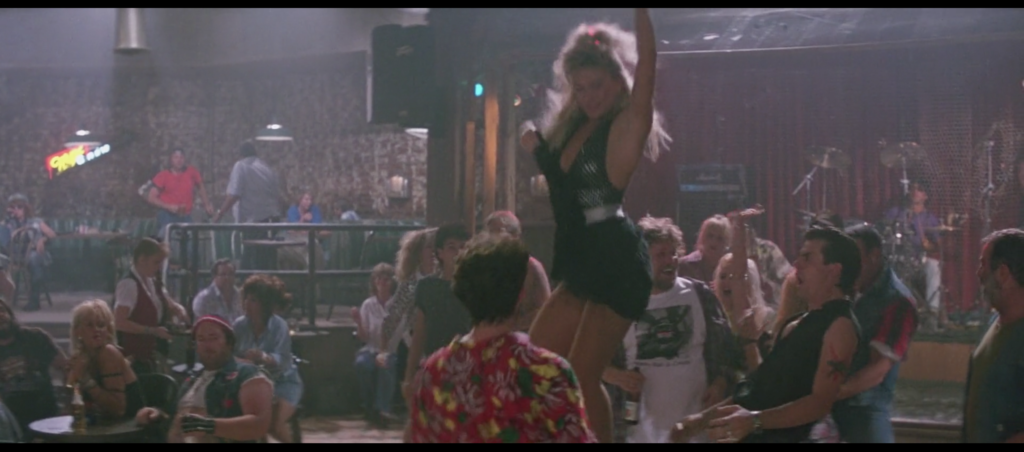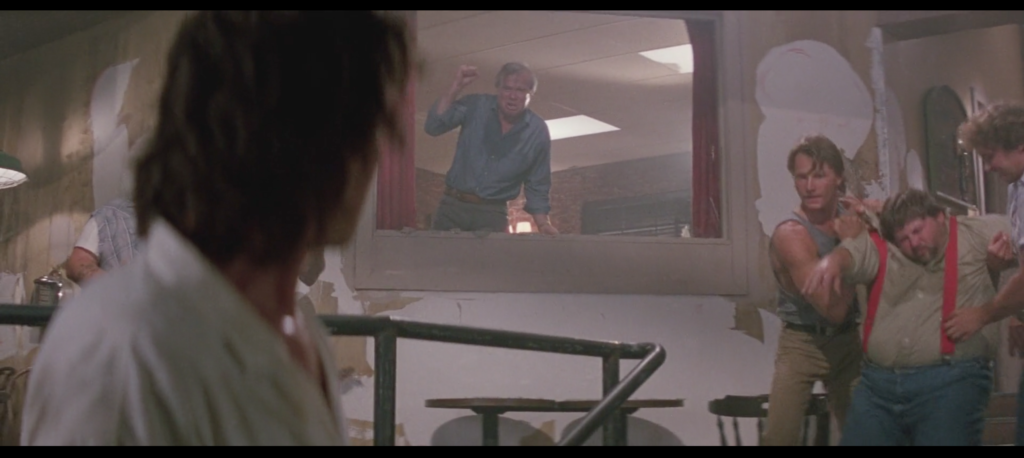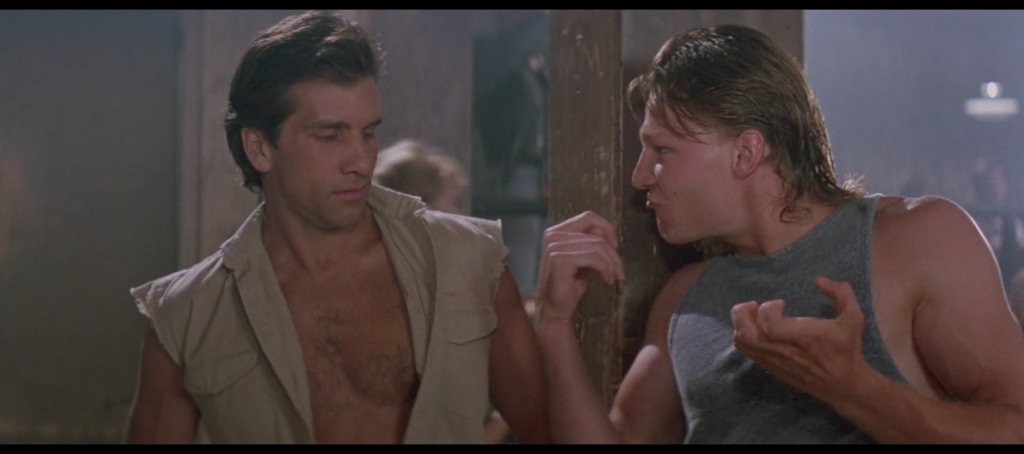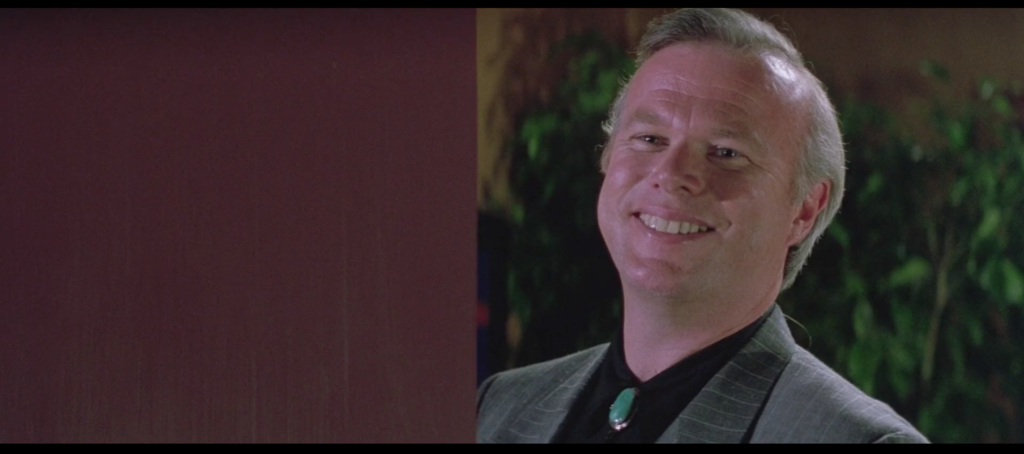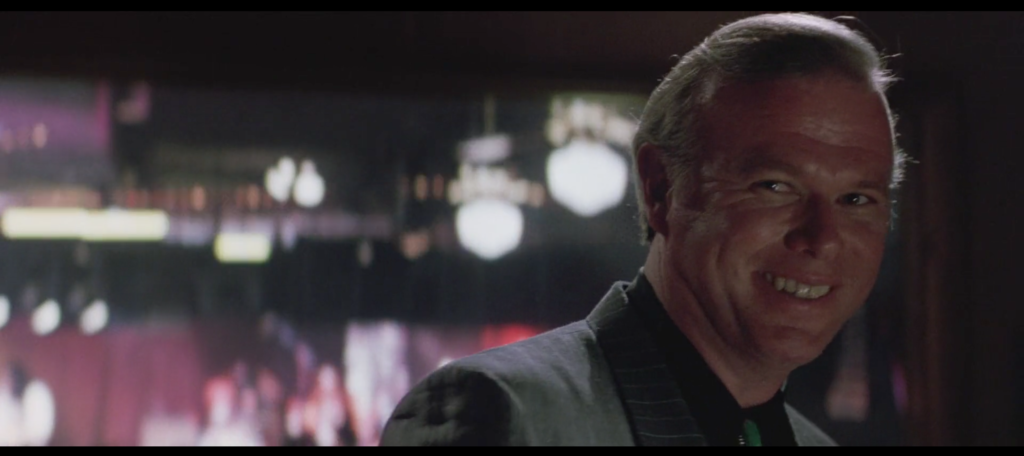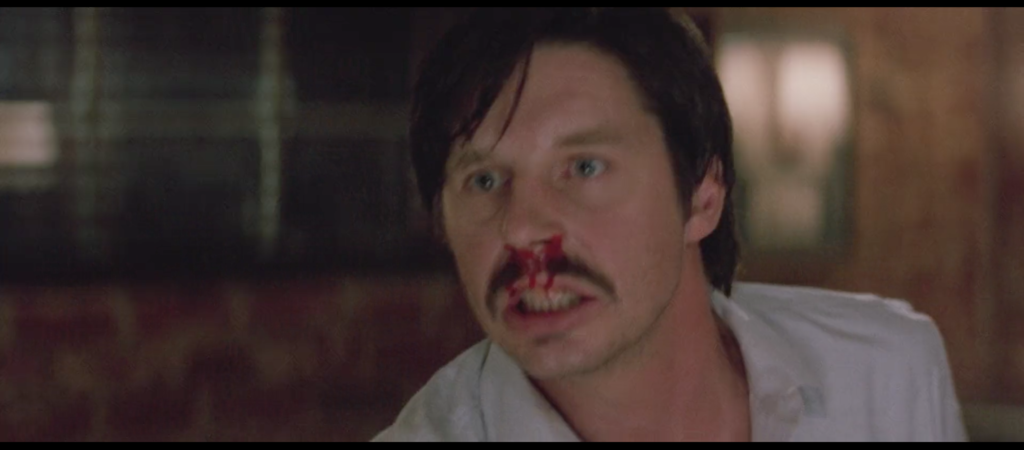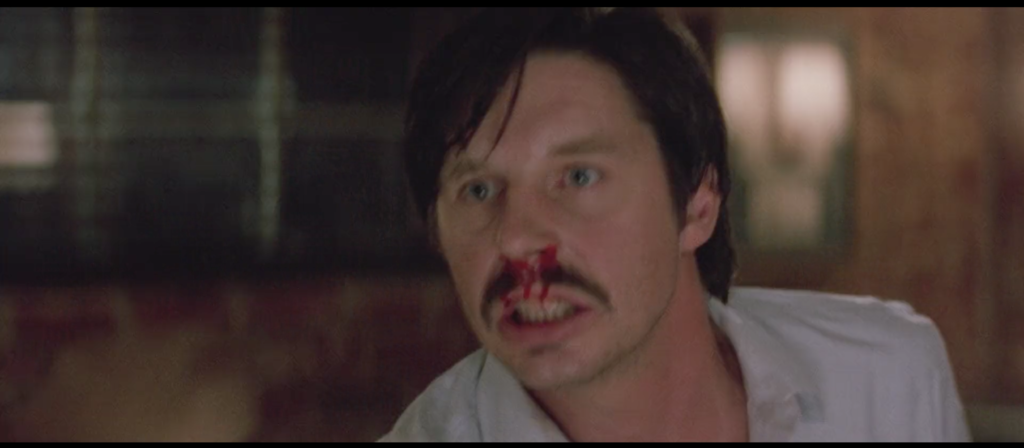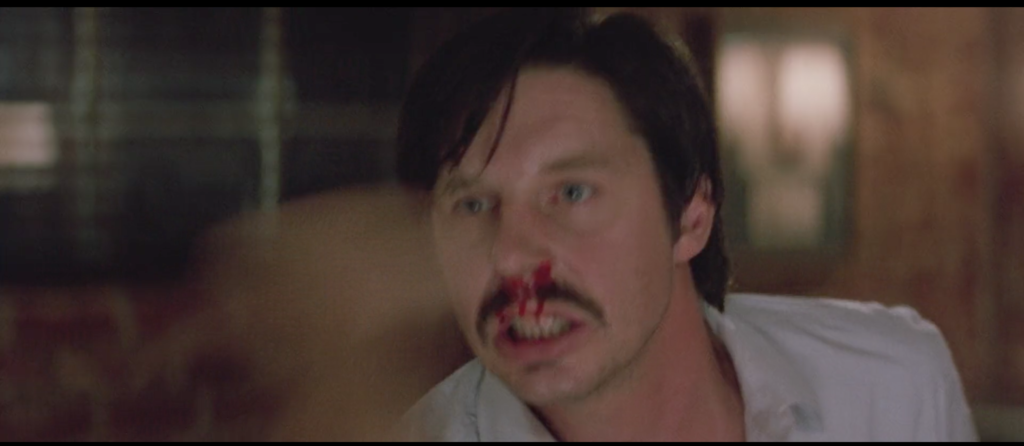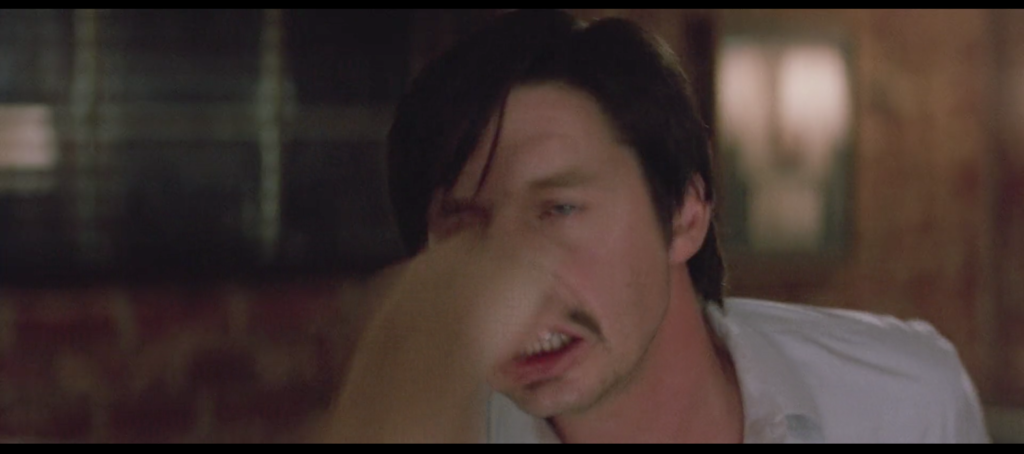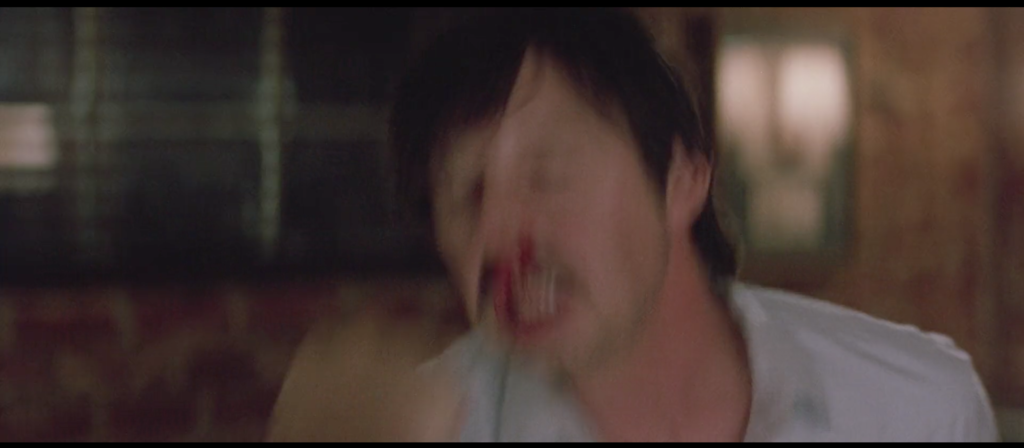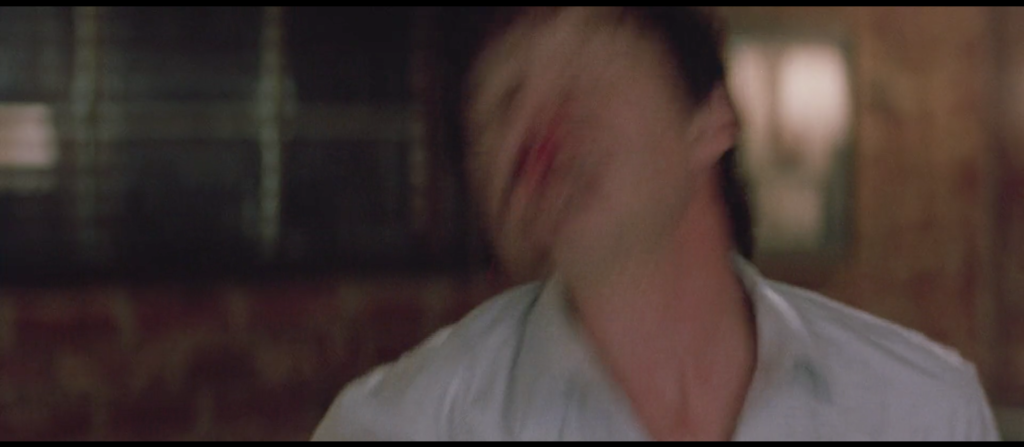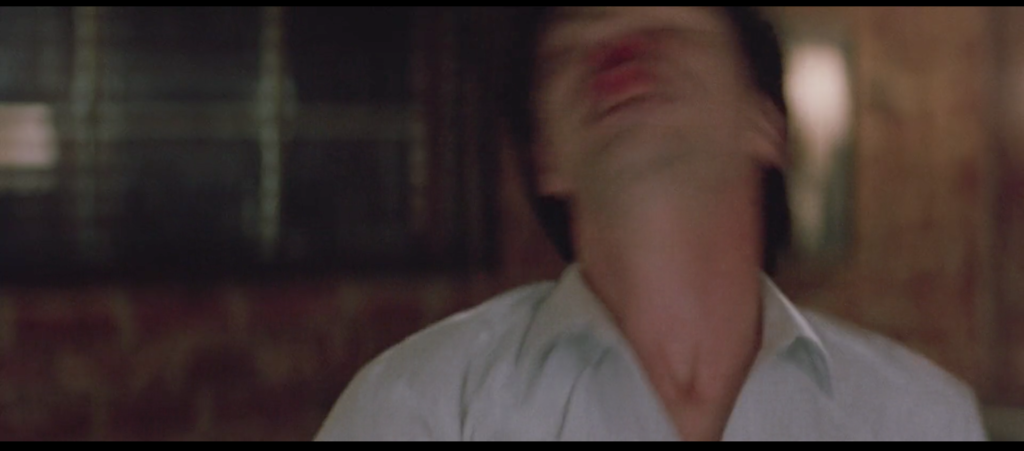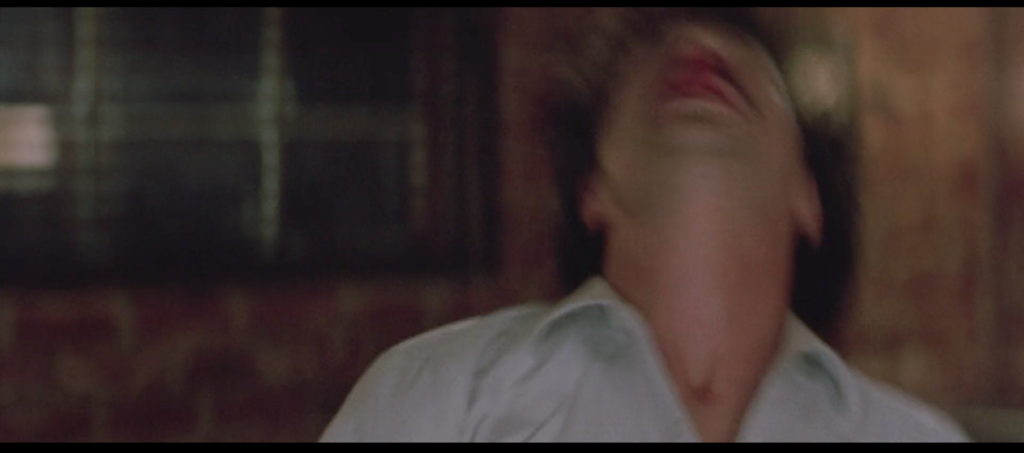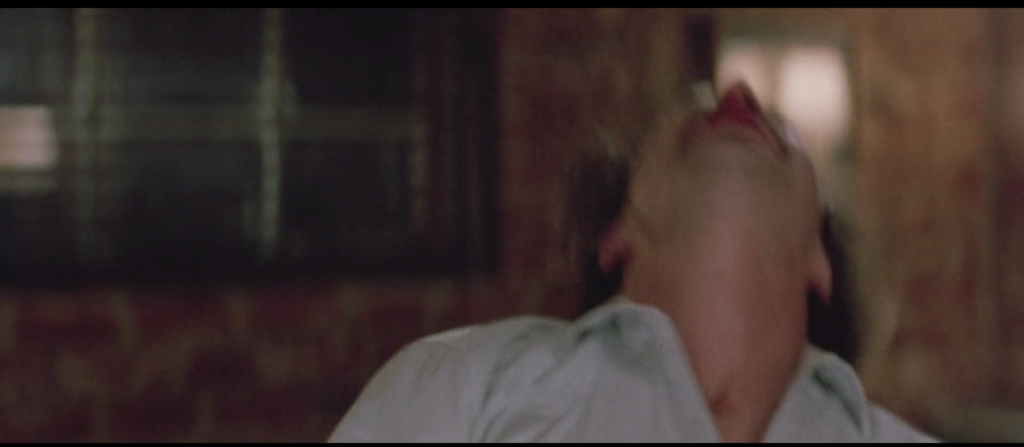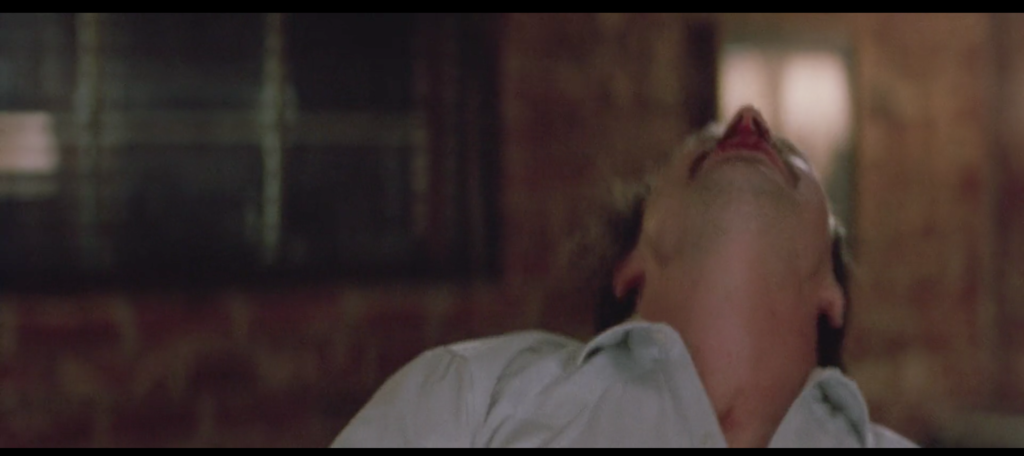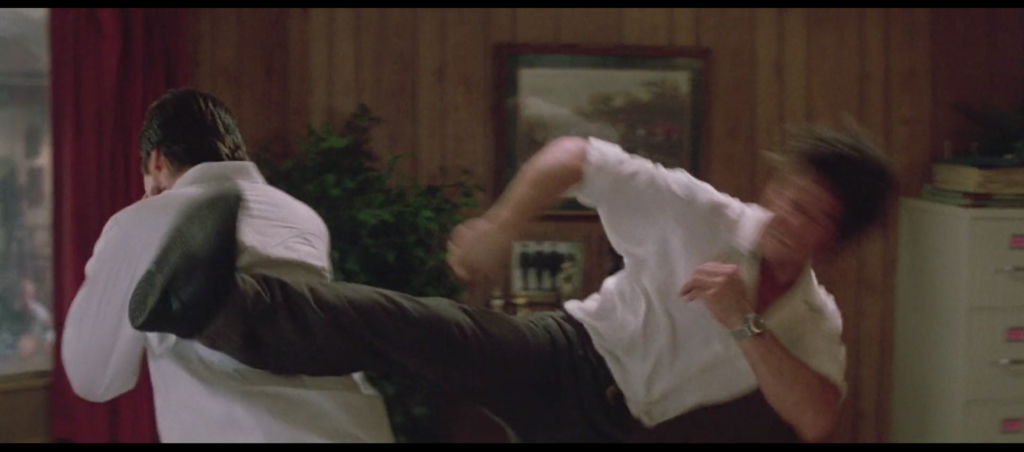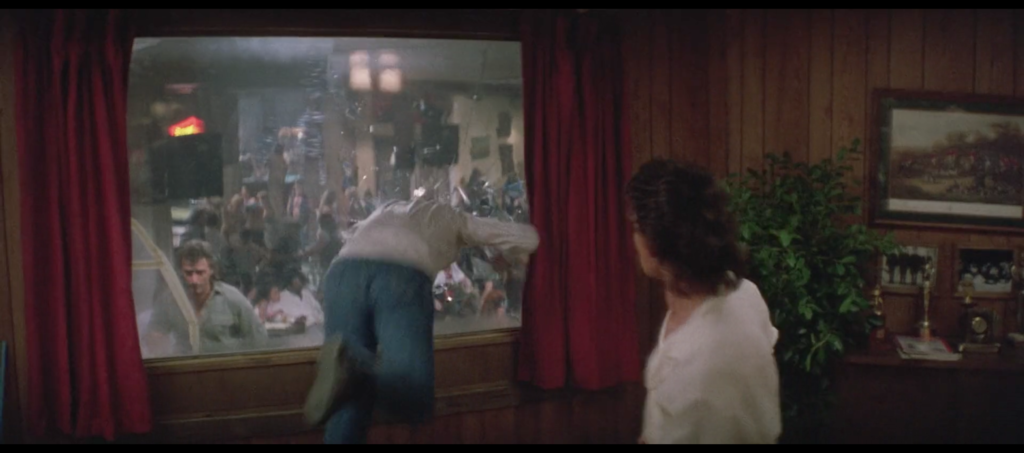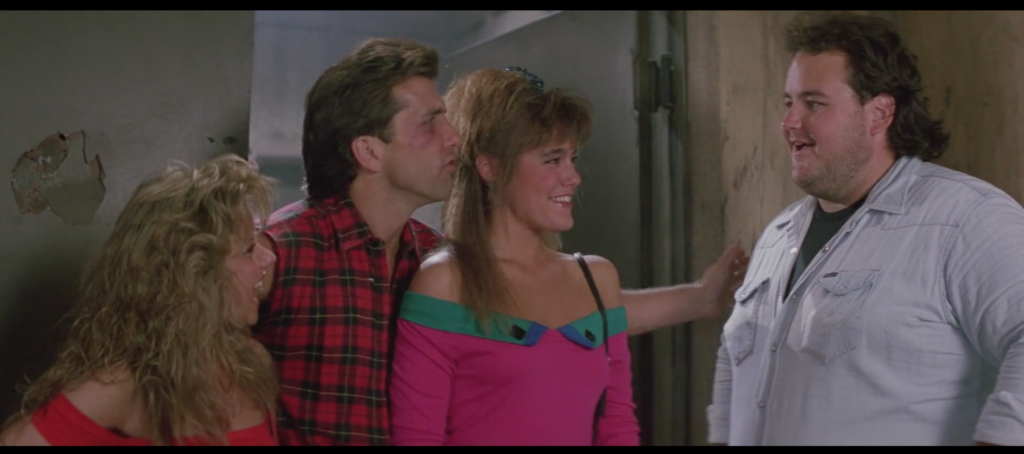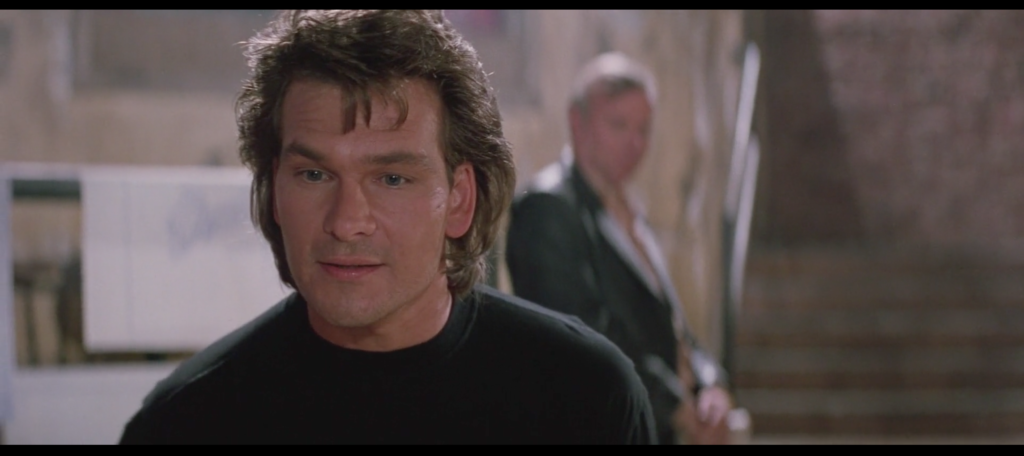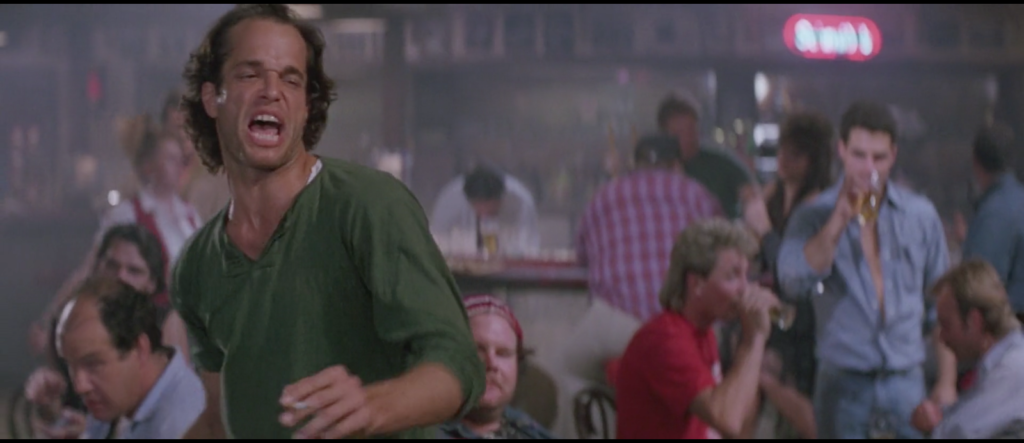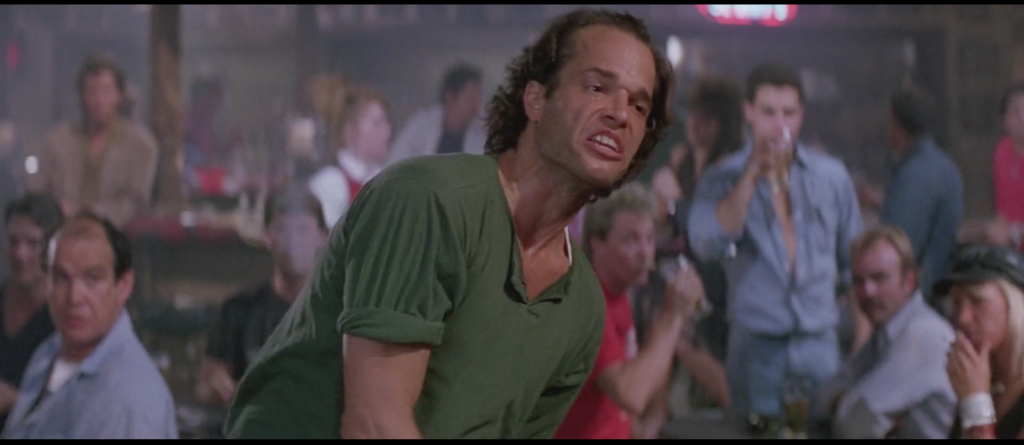In 1995, the Emmy nominees for Best Drama were Chicago Hope, ER, Law & Order, NYPD Blue, and The X-Files. In 1996, the Emmy nominees for Best Drama were Chicago Hope, ER, Law & Order, NYPD Blue, and The X-Files. In 1997, the Emmy nominees for Best Drama were Chicago Hope, ER, Law & Order, NYPD Blue, and The X-Files. That is: two cop shows set in New York, two medical shows set in Chicago, and some aliens, spread across four networks, represented the height and breadth of the art form for three years running.
In 1995, the Emmy nominees for Best Comedy were Frasier, Friends, The Larry Sanders Show, Mad About You, and Seinfeld. In 1996, the Emmy nominees for Best Comedy were Frasier, Friends, The Larry Sanders Show, Mad About You, and Seinfeld. In 1997, the Emmy nominees for Best Comedy were Frasier, 3rd Rock from the Sun(surprise!), The Larry Sanders Show, Mad About You, and Seinfeld. Three shows about neurotic well-off New Yorkers, one show about neurotic well-off Seattleites, Garry Shandling, and some (other) aliens, concentrated almost solely on NBC with one lone outlier represented the height and breadth of the art form for three years running.
By 1999 that lone outlier was airing The Sopranos and Sex and the City, and the story from there is familiar to pretty much everyone. The Wire and Deadwood, Mad Men and Breaking Bad, HBO, AMC, FX, DVDs, DVRs, the New Golden Age, new voices, shorter seasons, higher standards, bigger stars, superstar showrunners, more choices, the widely pronounced death of monoculture and the waning of the Big Four broadcast networks—an embarrassment of riches, an art form in its ascendancy at last.
In this quest-narrative of progress through increased options, streaming services were supposed to toss the One Ring of monoculture into Mount Doom for good. They’d offer virtually limitless viewing options. They’d enable viewers to cut the cord that bound them to cable and broadcast networks, allowing those viewers to watch those endless options whenever and wherever they wanted. When the biggest of those services, Netflix, entered the original-programming fray in earnest, it kicked off the arms race of production known as Peak TV. In this content-rich environment, creating a culture-unifying hit is a war for the throne that only one or two shows could win, but finding the right show for your personal subculture of one was easier than ever. No more TGIFs, no more Must See TVs: Television was the art form of the future, and Netflix was the future of television, and the future was here at last.
And now we know what it looks like. In 2018, 14 of Neflix’s top 20 shows, and all 10 of its top 10 shows, were broadcast-network reruns. Friends, which received its first Emmy nomination while Bill Clinton was president, is number one.
Netflix’s Bright Future Looks A Lot Like Television’s Dim Past
065. “He killed a guy once. Ripped his throat right out.”
When Frank Tilghman traveled to New York (City?) to hire the (second) best damn cooler in the business and also cast humorous aspersions on the size of his penis, we in the audience pretty much had to take his word for it. Dalton has great hair, a great body, a cool as ice demeanor, the ability to dupe Knife Nerds into leaving a bar of their own volition, and the stomach to stitch up his own knife wounds, yes. But actual bouncing? No evidence of that just yet, much less enough to decide that this lion-maned man is a one-man army in a throwdown.
Conveying just what Dalton is capable of in the clutch (literally) falls to Hank, the Double Deuce’s resident Dalton fanboy. When Dalton first arrives and word of his identity gets around—he tells Carrie Ann and Pat McGurn overhears and thus the legend is spread—the bar’s staff are all aflutter, some with excitement, some with skepticism, some with…whatever emotion covers “shit, I’m not going to be able to steal from the cash register/beat up patrons at random so easily anymore.” Hank is on the excitement end of the spectrum.
“He killed a guy once,” Hank tells his fellow bouncer Horny Steve as they lounge against a wooden post while wearing what would, if combined, amount to nearly one whole shirt. Hank shoots his left arm forward across their bodies, then pulls it back hard, raking his clawed fingers against the air just in front of Steve’s neck. “Ripped his throat right out,” he explains. He sounds like he’s talking about Regina George.
Our man Steven is unconvinced. “Bullshit,” he replies, only he pronounces it in that great movie-hardass way: “Bull shit,” two words, like the t-shirt the kid wears in The Jerk. And for all we know, Steve has the right of it. The way people have carried on about Dalton in this movie so far, there’s no telling what he’s actually capable of on the one hand, and how much his reputation has been exaggerated by the awestruck barfolk of the world. After all, Carrie Ann the extremely cool waitress recognizes his name instantly and reacts like she’s just realized she’s been making small talk with INXS’s Michael Hutchence. People are bowled over by this dude.
Also, and I think this is crucial to understanding a lot of what goes down in the first act of the film, nearly everyone we meet is very stupid. Dalton’s not and Tilghman’s not, that much is clear. But by the time the film hits the 15-minute mark, a grand total of nine words longer than two syllalbes, and zero words longer than three, have been uttered; of those nine, one is “peckerhead” and another is “attitudes.” It’s not difficult to imagine convincing Hank here that Dalton is bulletproof.
But even an extremely dumb clock tells the right time twice a day.
“Suburra: Blood on Rome” thoughts, Season Two, Episode Eight: “Tell Me the Truth”
The dumb handsome dirtbags. The heart-on-sleeve performances by the actors (Alessandro Borghi, Giacomo Ferrara, and Eduardo Valdarnini) who play them. The action, romance, tragedy, and extravagant cynicism. The lush lighting, lavish scenery, aching score, and sharp cinematography. The use of betrayal, backstabbing, and devastating shocks—crime-fiction staples all, for obvious reasons—as ways to explore their polar opposites: love, loyalty, and the natural human desire to be able to depend on others, and to be depended on in turn. Everything good about Suburra: Blood on Rome in general is good about its second season finale in particular.
Indeed, the rapid clip at which gobsmacking, heartwarming, and heartbreaking developments take place in “Tell Me the Truth” make this that rarest of beasts: a Netflix season that should have been longer.
I reviewed the season finale of Suburra: Blood on Rome Season Two for Decider.
“Suburra: Blood on Rome” thoughts, Season Two, Episode Eight: “Tell Me the Truth”
The dumb handsome dirtbags. The heart-on-sleeve performances by the actors (Alessandro Borghi, Giacomo Ferrara, and Eduardo Valdarnini) who play them. The action, romance, tragedy, and extravagant cynicism. The lush lighting, lavish scenery, aching score, and sharp cinematography. The use of betrayal, backstabbing, and devastating shocks—crime-fiction staples all, for obvious reasons—as ways to explore their polar opposites: love, loyalty, and the natural human desire to be able to depend on others, and to be depended on in turn. Everything good about Suburra: Blood on Rome in general is good about its second season finale in particular.
I reviewed the season finale of Suburra: Blood on Rome Season 2 for Decider.
064. I Thought You’d Be Bigger Vol. 1: Tilghman
At the end of their first encounter Frank Tilghman tells Dalton “I thought you’d be bigger.” This is Road House‘s primary recurring joke; you’ll hear it two more times from two other people. It’s probably swiped from everyone telling Snake Plissken “I thought you were dead” in Escape from New York, for what it’s worth. It’s a groaner, and it’s endearing in its groanerness over time.
It is also a weird thing to say to someone you just met. It’s a weird thing to say even if they’re a person whose job is usually associated with being of a certain size. Imagine meeting a professional wrestler or basketball player and saying that: You can picture the mechanical smile and hear the canned response already, right? Because chances are it’s not the first time the person in the job usually performed by a bigger person has been made aware that they are, comparatively speaking, smaller. It’s more likely that they’ve thought about this for literally decades, like since they were in first grade, than that this charming bit of banter will catch them delightfully unawares.
Frank Tilghman is a weird guy, though, whether by design or by Kevin Tighe’s inability to play him any other way. (A reader I’ve since argued with because I think it’s more likely Steven Spielberg has cinema’s best interests at heart than Netflix does suggested he auditioned for the Brad Wesley part, got Tilghman instead, and simply decided to play the role as Brad Wesley anyway, and it’s a damn good theory.) If you could dress a leer up in a bolo tie, that’s Frank Tilghman. He looks like a police sketch based solely on an eyewitness saying “He was some kind of pervert.” If you can watch him during the opening of this movie and not assume he’s the villain of the piece, I think that constitutes a Turing test failure.
Nevertheless he is one of the good guys, he has no ill intent toward Dalton, at no point does he do anything to antagonize or undermine or bamboozle or even overtax Dalton during his employment at the Double Deuce. This only makes “I thought you’d be bigger” even weirder.
Yet the way he says it is the weirdest thing of all, way more than the mere fact of saying it. He’s closes a deal bringing the best young cooler in the nation into the fold for a cool mid-six-figure salary, with no set start date. He does this while watching Dalton a) stitch himself up from a knife wound Tilghman also watched him incur minutes earlier, and b) summarily quit his current job while treating the owner of the bar he’d worked in like dogshit. And what does he do on his way out the door but pause, flash that unmarked-van grin, and say “You know, I thought you’d be…bigger.” The ellipsis represents a pause so pregnant with implication and innuendo its water is breaking, and the emphasis on bigger is definitely in the original, and did I mention he literally looks Dalton’s shirtless body up and down as he says this?
Now then. Do we have reason to believe Tilghman lusts after Dalton? Yes: Dalton is reason enough for anyone to lust after Dalton. Do we have reason beyond that? Yes: My theory that he and Pat McGurn were at one time involved romantically for one thing, or my other theory that the mysterious fortune he’s suddenly come into that allows him to renovate the Double Deuce and hire Dalton to keep the place secure came from an old rich widow he seduced as a closeted gigolo, persuaded to change her will to make him her sole beneficiary, and then tossed over the railing of a cruise ship, like the “Not great, Bob!” storyline from Mad Men, would (if true) indicate he is attracted to men and also makes destructive decisions in that regard. Are we intended to read his “I thought you’d be…bigger” as both a come-on and a sexualized dick joke? Yes: Our eyes and ears are not lying to us.
Do we need to respond with the kind of gross shitty gay-panic laffs we might have expected from movies and audiences alike for decades prior to this film’s release and at least a couple decades after it? No! The proper way to respond is this. First, to paraphrase RiffTrax’s Mike Nelson, the question of whether Kevin Tighe is trying to bed down Patrick Swayze, or the character equivalents of same, is a fascinating one on its face. It’s like when you learn Kate Beckinsale has a kid with Michael Sheen, which many people just learned when they also learned Kate Beckinsale is fucking Pete Davidson, the Saturday Night Live lotto winner who was previously fucking Ariana Grade. “A lot going on here,” I believe is your American expression, yes?
Second, and more importantly, this is a workplace safety issue, because Frank Tilghman absolutely is sexually harassing his new employee here before his first day on the job! Frank Tilghman may be on the side of the angels where the larger war for the soul of Jasper, Missouri is concerned, but he is without question an awful boss. Remember that before Dalton, Tilghman’s hires (that we know of) include two Brad Wesley goons and an extremely surly and obvious coke dealer and a guy who allows teenagers into the bar so he can have sex with them. The fish rots from the head.
Seen in this light, “I thought you’d be…bigger” becomes more than a come-on or a dick joke. It’s a cry for help. Frank Tilghman knows the magnitude of the task ahead of him—not cleaning up the Double Deuce, that’s just a metaphor, but cleaning up Augean stables of his very soul. To Tilghman, that is Dalton’s true task. Beneath the clumsy curiosity about his new hire’s penis lies the real question: Is he man enough to make me whole?
“Suburra: Blood on Rome” thoughts, Season Two, Episode Seven: “Saints Peter and Paul”
In one of the most momentous episodes of Suburra Season 2 to date—an episode in which one member of our core trio is crowned king and another is tortured till he’s a broken man—a little detail in the first minute or two after the opening title sticks with me. It’s morning, and Aureliano and Nadia have slept off their narrow escape of the previous night. She wakes up first, and pads over to the couch where he’s sleeping, seemingly just to get a look at him. She turns and walks toward the window, not realizing that for a brief moment he’s opened his eyes, just to get a look at her too. Storied television romances have been built on much less subtle and solid a foundation.
I reviewed the penultimate episode of Suburra: Blood on Rome Season Two for Decider.
“Suburra: Blood on Rome” thoughts, Season Two, Episode Seven: “Saints Peter and Paul”
In one of the most momentous episodes of Suburra Season 2 to date—an episode in which one member of our core trio is crowned king and another is tortured till he’s a broken man—a little detail in the first minute or two after the opening title sticks with me. It’s morning, and Aureliano and Nadia have slept off their narrow escape of the previous night. She wakes up first, and pads over to the couch where he’s sleeping, seemingly just to get a look at him. She turns and walks toward the window, not realizing that for a brief moment he’s opened his eyes, just to get a look at her too. Storied television romances have been built on much less subtle and solid a foundation.
I reviewed the penultimate episode of Suburra: Blood on Rome Season 2 for Decider.
063. Patrick Swayze Beating the Shit out of John Doe from X
Road House is a film in which Patrick Swayze beats the shit out of John Doe from X.
It’s simple, really. Sister-son Pat McGurn returns to his former place of employment with his uncle’s most useless enforcers O’Connor and Tinker in tow in order to force proprietor Frank Tilghman to reverse the decision of the bar’s new cooler Dalton and reinstate him to his position of bartender. Dalton takes very mild issue with the plan. Pat whine-gloats like a petulant child who thinks their parents are gonna punish their little brother and not them, then produces a knife the size of a machete and proceeds to simultaneously slash at and gay-panic taunt Dalton. Dalton punches his nose in. While he holds his hands to his broken face and howls in pain, Dalton spin-kicks him through a plate-glass window. He remains incapacitated for the duration of the fight that ensues, after which he is bodily carried out of the bar.
Concerned that Pat McGurn didn’t receive enough punishment? I’ve got you. First it’s important to note that by the end of the film Dalton will murder Pat McGurn, using the body of a dying goon to block Pat’s shotgun blast, then withdrawing the knife he’d inserted into the now dead goon’s gut and throwing it into Pat’s chest, causing him to misfire one last time and then plummet from a second-story landing to the ground below. Second you’ll notice from those screenshots that Pat’s nose was already bleeding before Dalton’s punch connected; you can call this slapdash continuity if you want, but I prefer to believe that either his body anticipated the damage that was about to be done to it and started hemorrhaging spontaneously, or that Dalton caused him to bleed without touching him by sheer force of chi. Or both! I’m not picky.
But here’s the bottom line, friends: Road House is a film in which Patrick Swayze beats the shit out of John Doe from X.
“Suburra: Blood on Rome” thoughts, Season One, Episode Six: “It’s War”
“You wanna go to war?!?” Well, kinda. The sixth episode of Suburra: Blood on Rome Season 2 may be called “It’s War,” because that’s the desired outcome of nearly everyone involved: Adelaide Anacleti’s Sinti Roma faction, who want to take Ostia by force; her son Spadino, his wife Angelica, and his friend Aureliano Adami, who want to team up to ambush Adelaide’s men, thus protecting Aureliano’s turf and handing control of the “Gypsys” to Spadino; Amedeo Cinaglia and Sara Monaschi, who want the chaos to scare the Roman people into voting for the Right, a politically advantageous development for them both. Alone among the major characters, only the itinerant mob boss Samurai wants to stop the bloodshed, to facilitate his own political alliances. But when the shooting starts, everyone gets both far more and far less than they bargained for.
I reviewed episode six of Suburra: Blood on Rome Season Two for Decider.
061. The Third Rule, Verse 2
“This is the new Double Deuce,” says Frank Tilghman. We are at the start of an all-hands staff meeting, and Tilghman is pointing to the concept art for the bar’s redesign. But standing nearby is his latest hire, Dalton. It is through Dalton, with Dalton, in Dalton that the new Double Deuce will be achieved. Dalton embodies the new Double Deuce. He is its future.
When Dalton takes over as cooler he becomes more than just the chief bouncer. His role is not to handle a series of discrete incidents, but to institute sweeping reforms that will eliminate such incidents forever. “It’s going to change,” he states—not a threat, not a promise, a fact. His bouncers, too, must change for this to take place. As below, so above.
Bouncing on the Dalton Path is a matter of following “three simple rules.”
This, again, is the third.
3. Be nice. (continued)
When first we assayed the Third Rule, I said the following:
It is the shortest rule, and it requires the most explanation. It is the least practically minded rule, and it is illustrated with the most practical applications. It is a rule about being kind to others, on the surface at least, and it is the rule greeted—and at times delivered—with the most open incredulity, even hostility.
When Dalton tells the assembled staff of the Double Deuce to be nice, it is Jack the bouncer who, whether in spite or because of being Dalton’s best student, opens the door for doubt. “Come on,” he says, gently but with unmistakable disbelief. He’s trying to ask his new sensei “Are you out of your mind?” in the politest possible way.
Now comes the yin-yang instructional configuration that should be familiar to us as central to the Giving of the Rules. Dalton leans forward and tells Jack “If somebody gets in your face and calls you a cocksucker, I want you to be nice.” Jack responds with a skeptical “Ohkayy”—and, though he knows it not, passes the test Dalton has just given him in so doing. Dalton got in his face and called him a cocksucker, and he was nice. It takes the doing of the thing to see that it can be done and learn how to do it. If you think this sentence is confusing, then change one pig.
(to be continued)
“Suburra: Blood on Rome” thoughts, Season Two, Episode Five: “Upside Down”
When the moon hits your eye like a big pizza pie, that’s Suburra!
When you kiss but feel bad cuz you just killed her dad, that’s Suburra!
When you free / several refugees / just so there can be / unrest in the streets, that’s Suburra!
When you roast dudes like ribs then go shopping for cribs, that’s Suburra!
Yes, romance, parenthood, racism, and the smell of burning flesh are all in the air in this episode of Suburra: Blood on Rome. Named “The Crib” after the hilariously gaudy baby furniture Spadino and Aureliano buy for the former’s forthcoming bundle of joy—at the end of a long night during which Aureliano burned the abusive cousins of his new right-hand woman Nadia to death and then dumped the corpses in front of the heads of all the Ostia crime families as a warning never to do business with “gypsies” again—this one is jam packed with everything that makes this show so goddamn good to watch.
I reviewed the fifth episode of Suburra: Blood on Rome Season 2 for Decider.
“Suburra: Blood on Rome” thoughts, Season Two, Episode Five: “The Crib”
When the moon hits your eye like a big pizza pie, that’s Suburra!
When you kiss but feel bad cuz you just killed her dad, that’s Suburra!
When you free / several refugees / just so there can be / unrest in the streets, that’s Suburra!
When you roast dudes like ribs then go shopping for cribs, that’s Suburra!
I had a little fun reviewing episode five of Suburra: Blood on Rome Season 2 for Decider.
“Suburra: Blood on Rome” thoughts, Season Two, Episode Four: “Upside Down”
The dream of the ’90s is alive in Suburra. That’s one of the many, many, many things I find endearing about this show, I realize now. Sexy, cool-looking dirtbags cruising around in a late-night city to late-night electronic music, like if The Sopranos starred the cast of Trainspotting. It’s beautiful, man, just beautiful. If I could ensure I wouldn’t get shot, or wouldn’t have to sit someplace crying because someone I love got shot, I’d move there in a heartbeat.
Speaking of the ’90s, a decade during which I did a lot of crying, men cry a lot on Suburra, too. Maybe more than in any other show I’ve watched, when you factor in the small number of episodes to date and the short running time of each? That’s another attractive element. Again, I always call this show “emotional,” and this is why.
I reviewed the fourth episode of Suburra: Blood on Rome Season 2 for Decider.
“Suburra: Blood on Rome” thoughts, Season Two, Episode Four
The dream of the ’90s is alive in Suburra. That’s one of the many, many, many things I find endearing about this show, I realize now. Sexy, cool-looking dirtbags cruising around in a late-night city to late-night electronic music, like if The Sopranosstarred the cast of Trainspotting. It’s beautiful, man, just beautiful. If I could ensure I wouldn’t get shot, or wouldn’t have to sit someplace crying because someone I love got shot, I’d move there in a heartbeat.
Speaking of the ’90s, a decade during which I did a lot of crying, men cry a lot on Suburra, too. Maybe more than in any other show I’ve watched, when you factor in the small number of episodes to date and the short running time of each? That’s another attractive element. Again, I always call this show “emotional,” and this is why.
I reviewed episode four of Suburra: Blood on Rome Season 2 for Decider.

